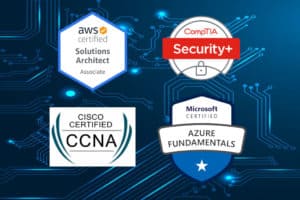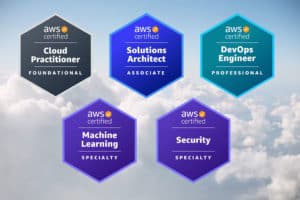Navigating the labyrinth of career advancement in supply chain management (SCM) can often feel like searching for a light switch in the dark. You’re aware that amplifying your skill set with a logistics certification is a bright idea, but you’re unsure how long the journey will take. It’s a common plight – you’re ready to elevate your career, yet the path to certification appears shrouded in mystery.
We get it, and that’s precisely why this blog is here to guide you through. Forget about navigating this journey alone; we’re here to share insights and real talk on how long it takes to earn a logistics certification for SCM.
Quick Takeaways:
- Earning a logistics certification can take 4-6 months full-time or over a year part-time, depending on several factors including prior knowledge and the mode of learning.
- Diversify your study approach with online resources, engage in real-world SCM problems, and use digital tools for effective learning and organization.
- Practical SCM experience can significantly speed up the certification process, with strategic study planning and support from your network enhancing success.
What is a Logistics Certification for SCM?
When we talk about logistics certification in the context of Supply Chain Management (SCM), we’re diving into a specialized realm that’s all about efficiently moving goods and services from point A to point B. This certification is a gold star on your resume, signaling to employers that you’ve got what it takes to streamline their supply chain processes, cut costs, and boost customer satisfaction. In a nutshell, a logistics certification equips professionals with the know-how to manage the flow of products and resources in a global marketplace. It’s not just about transportation; it’s about strategic planning, inventory management, and leveraging technology to ace logistics operations.
How Long Does It Typically Take?
The time it takes to snag one of these valuable certifications can vary wildly. Typically, you could be looking at anywhere from a few months to over a year. Here’s the lowdown: if you opt for full-time study, you might carve your way through the coursework and exams in as little as 4 to 6 months. On the flip side, part-time learners juggling work or other commitments might take a year or more to cross the finish line.
However, it’s not just about putting in the hours. The depth and breadth of the program, whether it’s an entry-level certification or something more advanced like the Certified Supply Chain Professional (CSCP) from APICS, can stretch or shrink that timeline.
Factors That Influence the Duration
Several factors can play tug-of-war with the duration it takes to nab a logistics certification. Let’s dig into some of the biggies:
Prior Knowledge and Experience
If you’re already in the trenches of supply chain or logistics work, you might find the concepts and coursework easier to digest. This familiarity can shave off study time significantly compared to newcomers.
Choice of Certification Program
Not all certifications are created equal. Some, like the CSCP mentioned earlier, are broad and deep, designed for seasoned professionals. Others might be more specialized or foundational, aimed at getting newbies off to a solid start. Each has its own timeframe.
Mode of Learning
In today’s world, how you learn can be just as important as what you learn. Online programs offer flexibility and can sometimes accelerate your progress. In contrast, in-person courses provide structure but might require a more significant time commitment due to set class schedules.
Unique Tip for Our Readers
Here’s something you might not find elsewhere: Look into “micro-credentials” or badges in logistics and SCM fields. These bite-sized certifications can often be stacked towards larger certifications and offer a way to progressively build your expertise and credentials without the overwhelming time commitment from the get-go.
Remember, the journey to obtaining a logistics certification can vary widely based on personal circumstances and the specifics of the program. But the destination — becoming a certified logistics professional — is worth every minute you invest.
Can Experience Speed Up the Process?
Absolutely! Dive headfirst into the world of Supply Chain Management (SCM) and logistics, and you’ll quickly find out that experience isn’t just another feather in your cap; it can be your golden ticket. For folks who’ve spent years in the trenches, your hard-earned knowledge might just pave a faster path towards certification.
Consider this: many certification programs have prerequisites that are designed to ensure candidates have a solid foundation in SCM principles. But what if you’ve already been living and breathing these principles daily in your job? In such cases, some organizations are willing to consider relevant work experience as a substitute for traditional educational prerequisites. For example, the Certified Supply Chain Professional (CSCP) designation offered by APICS allows applicants to bypass certain requirements if they can demonstrate a specific amount of practical experience.
But wait, there’s more! If you’re a seasoned professional, you might also find that studying for your certification exam is a breeze. You’re not learning from scratch; you’re essentially putting theory to your practice. This synergy between work experience and study can highly accelerate your preparation and potentially reduce the time needed to get certified.
Preparing for Success
Ready to hit the books? Great! Pursuing a logistics certification requires dedication, but fear not; we’ve got some top-notch strategies to keep you on track.
-
Chunk Your Study Time: Don’t go for marathon study sessions that leave you drained. Instead, break your study time into manageable chunks. The Pomodoro Technique is a fan favorite, offering a simple yet effective framework of 25 minutes of focused study followed by a 5-minute break.
-
Leverage a Variety of Resources: Don’t stick to just one study guide or textbook. Diversify your learning with online courses, webinars, industry blogs, and forums. Websites like Coursera or edX offer logistics courses that can complement your study plan, and forums on LinkedIn or Reddit can provide valuable insights and tips from those who’ve already been through the process.
-
Stay Organized with Digital Tools: Make use of digital tools and apps to keep your study plan organized. Trello or Evernote can be great for tracking your progress, scheduling study sessions, and organizing your notes.
Here’s a trick most don’t tell you about: Engage with real-world SCM problems. Try to find case studies, industry reports, or even news articles on recent supply chain challenges and think about how you would tackle these issues. This approach not only deepens your understanding but also helps you apply theoretical knowledge in practical scenarios, a key skill for your future role.
Balancing Work, Life, and Certification Goals
The reality is, juggling work, personal life, and the pursuit of a certification can feel like trying to keep plates spinning. It’s challenging but not impossible. Here’s how you can keep everything up in the air without dropping the ball:
-
Prioritize and Plan: Sit down and have a heart-to-heart with yourself about your priorities. Can some social obligations wait? Are there tasks at work that you can delegate? Planning with a clear understanding of your priorities will help you find the right balance.
-
Communicate with Your Support System: Whether it’s your family, friends, or your boss, make sure they’re aware of your certification goals and how it might affect your availability. More often than not, they’ll be your biggest cheerleaders.
-
Set Realistic Deadlines: Sure, Johnny Fasttrack might have blitzed through his certification in three months, but that doesn’t mean you have to. Set a timeline that’s ambitious yet realistic for your circumstances.
In essence, getting a logistics certification when you are already in the SCM field can indeed be a swifter journey given your practical experience, but it requires a strategic approach to preparation and a balanced approach to life’s demands. With commitment, planning, and the right resources, you can navigate this journey successfully. Remember, it’s not just about the destination (getting certified) but also about the journey itself, enriching your professional life and expanding your horizons in the vast world of SCM.







